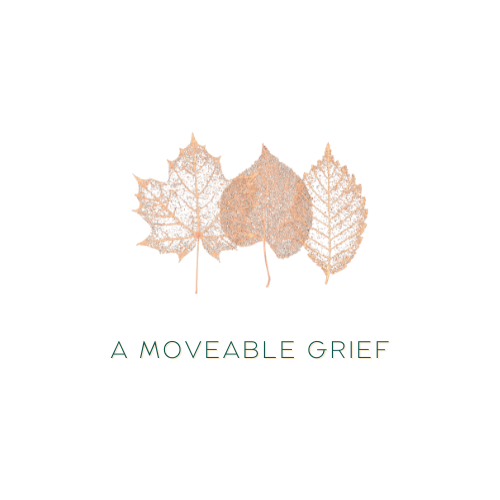Grief and THE HOLIDAYS
My social media feed is full of tips and tricks for grievers during THE HOLIDAYS, lists of what to say and not say to the grieving, how to find space for yourself, how to honor your dead loved one, etc. If we boil it down, it’s basically about how to hold yourself together and not explode into a sobbing mess.
Grief is a bacchanal of emotions, but we treat it like a formal mass, as if we have some control when it comes for us. Truly letting it all out in the presence of our loved ones, that would be honoring grief during the holidays. There is no formal attitude, no right way to do sorrow. Instead, we shove the grievers and their grief in the corner like an unpinned grenade and hope they don’t burst into flames of tears.
If we are truly gathered with people who love us, why can’t they hold our pain as well? Why should we go it alone?
Last year, Christmas snuck up on me in a very unpleasant way and I can feel it now—the war drums of the holidays of the “more-ness” of the “together-ness,” of all the ways none of us will ever measure up, all the energy being gathered and spent around one day on the calendar. I am entering THE HOLIDAYS 2022 without a husband and also without a mother, not to mention a lot of other relatives I miss dearly.
We flippantly throw around the term “surviving the holidays” and don’t think of how loaded a sentiment it really is for many, many people. Sure, parking lots are crowded, gift buying stress is a grind, and there’s a franticness to perfecting recipes, and the ultimate fear that THE HOLIDAYS will not be done the way so-and-so did it, won’t feel the same without X, Y or Z. But is it really something we need to treat like a life or death battle?
What if we stopped letting THE HOLIDAYS dictate what life and grief should look like?
Personally, I am tired of guarding and shielding and holding myself back in honor of THE HOLIDAYS. The worst things have happened to me the last couple of years and I want everyone to know it, to understand it, to feel it, to look around the table and understand that we are all alive and that is the gift, not the hundreds of dollars of things under the tree. But more than that, my “worst things” are universal, will happen to everyone at some point or another, so why shun it?
Better yet, let’s add more alternate holidays: For every birthday, a death day, for every anniversary, a widow-versary, and, a bonus floating holiday: The Day of Terrible Moments.
Anyone who watched Seinfeld, you’ll remember when George’s dad (played by the brilliant Jerry Stiller) called for a new holiday, Festivus. It was a day centered around anti-commercialism, and “the airing of grievances.” In honor of this tradition, I am hereby calling for an end to grief control and establishing a new holiday: Griefivus. It will focus on the airing of grief, the relaxing into the sadness and letting the performance go. A few tenets of Griefivus*:
SEPARATE DAYS FROM PERFORMATIVE EMOTIONS
Personally, I prefer to exist as if one day is as important as another. Not shift and shove myself into molds of normal that are not humanly possible once you have experienced a trauma. It’s the striving and performing normal, calm or joyous when I’m not the most exhausting. Let yourself feel what you feel. After all, a HOLIDAY is just another day in a string of days when your person will not be alive and the very least your family and friends can do is acknowledge it.
FEEL YOUR FEELINGS
Let’s weep and cry together. Let the dinners burn in the oven, lets stuff our faces and ruin our appetites with potato chips and dessert, let’s not give a rat’s ass about the Aunt So-and-so’s recipe done just right. Let’s not shift awkwardly in our chairs when Uncle So-and-So says something terrible, let him have it. Let truth and pain fly and let someone else clean the mess off the floor and the walls.
EDUCATE OTHERS ON DEATH AND LOSS
Instead of having some sanitized grief experience with a name-tag for your dead loved one at a place setting, let’s educate each other on death, on grief, on sorrow. Make the dinner table a death café. Rather than suffer through predictable and stressful conversations about COVID and/or politics or if you feel Brittney Griner should be home, talk about estate planning, making sure you have an advanced directive and eco-friendly burials. Don’t just hold a place setting for your loved one—hold the whole table. In fact, everyone else can sit at the kid’s table, this entire table is for the griever and their lost people to stretch out until they are bigger than the room.
THE HOLIDAYS focus on the erasure of pain and suffering (not to mention history), a constant striving to forget the “bad” things and hold on to the “good.” You don’t have to dig too deep to find that holidays are just a reminder that nothing is permanent. Nothing stays the same—no feeling, no person, no moment, no memory. And there is a beauty in accepting that shift.
Further reading: After a Death, the Holidays are a Secondary Loss, What’s Your Grief?
*Griefivus is open to all and the tenets are add-able. There is no “right or wrong way” to do Griefivus and no one gives a crap about the type of decorations or wrapping paper you use.
